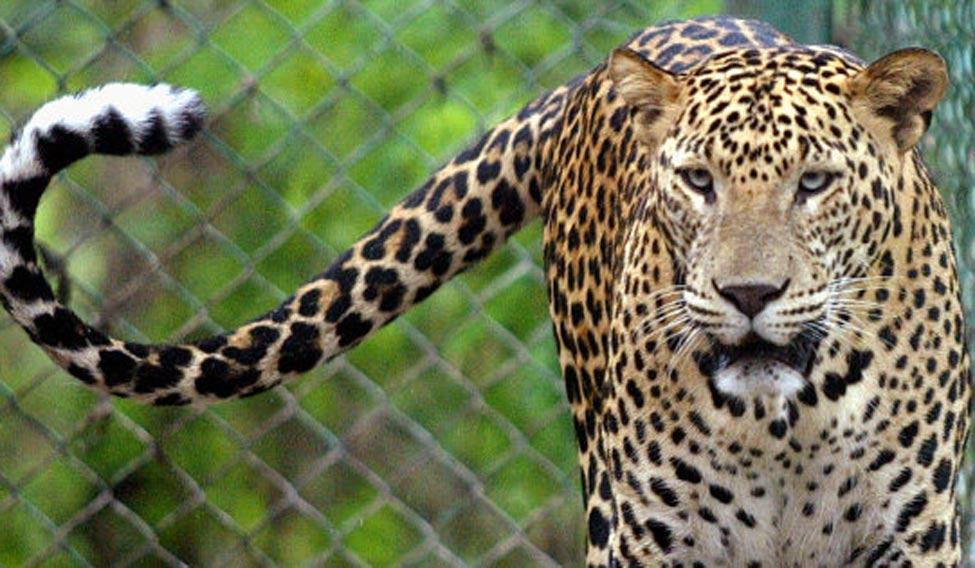A video of a dog being attacked by a leopard at the Bombay Veterinary College had gone viral a few days ago. The wild animal had entered the girls' hostel on June 9 and attacked the dog which was being kept as a pet by the students. Though it is a known fact for the students and locals of Goregaon east, close to Sanjay Gandhi National Park (SGNP) where the college's sprawling campus is located, that there are 35 leopards in that area, the 'break in' and the video was a shock. The students were left scared for their safety after the leopard was captured on CCTV jumping over a seven feet-high wall with barbed wires.
The students voiced their concerns as the girls' hostel, where the leopard broke in, is in a dark and secluded corner of the campus and leopards are known to be nocturnal predators. Following the incident, high-mast lights were installed around the girls' hostel where 60 students reside. In order to prepare the students to peacefully live and co-exist with the leopards, officials from the SGNP organised a session with the students on June 16.
The members of SGNP's rescue team and volunteers advised the students to walk around the hostel in groups after dark and even play music on their phones and turn on a torch to avoid surprise encounters with the big cat. Speaking at the session, Dr Shailesh Pethe, veterinary officer of SGNP who has been handling captive animals and wildlife for more than a decade, said, "There is no point in capturing a leopard because, as we know, the college campus is one of the most densely populated areas for leopards. Our only option is to live with the leopards. After all, 24,000 people have been living in SGNP for decades along with leopards and there have been no attacks."
"Around 40-70 per cent of the leopards' main diet are stray dogs as it is easy prey for them. The students need to keep their dogs in a safe, enclosed area or indoors in order to prevent such incidents from taking place in the future," added Dr Pethe. Many of the budding veterinary doctors adopt dogs abandoned by their owners and take care of them by letting them stay on campus and feeding them regularly. Other than this, students were told to stop throwing their garbage outside their hostels.
Requesting anonymity, a student from the Bombay Veterinary College said, “We were told to get rid of the dogs to keep the leopards at bay but we have grown attached to them. How can we just make them leave our hostel area? In order to control the dog population on campus, we have sterilised or neutered most of them. However, a far bigger issue is the huge pile of garbage outside the girls' hostel which is also attracting the leopards.”
"The dean needs to make an alternate arrangement so that we don't have to dump everything outside or inform the BMC to clear it. As of now, we have no other place to dispose wet waste," adds the student. When contacted, Dr Ashish Paturkar, dean of the college said, "We have already cleared out all the garbage next to the hostel. Also, arrangements have been made for the BMC truck to come regularly to prevent any more piling of garbage."
The SGNP officials also advised the college's authorities to fix the fences around the hostel to prevent another such incident from taking place. According to the students, this was the first incident in several years where a dog was attacked by a leopard.





